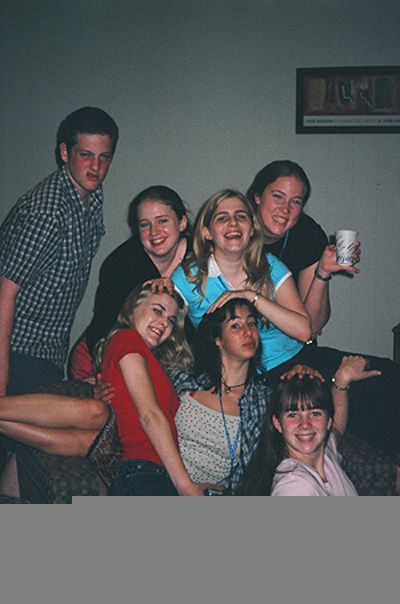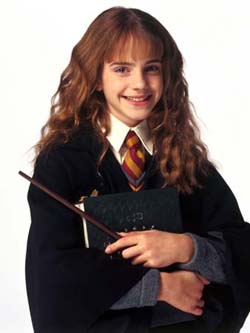Last year on the first day of school, we offered Smarties. The students complained, but I was happy as a clam because, you see, I don't like Smarties. Which meant it was easy for me to sit at the desk with a big bowl of candy in front of me. But apparently the other campus puts out chocolate all year round, and this year, to curry favor with the student body, we have followed suit. And so I'm sitting here, methodically unwrapping one of each kind of candy...or two, in the case of Krackels and Reeses peanut butter cups, of which I'm particularly fond.
This variety has gotten me thinking about singers, naturally. All of them are chocolate. Most of them have some kind of delicious filling--peanut butter, caramel, peanuts, rice krispies, whatever kind of crispy goodness is in Crunch bars. I love them all. So what makes one of them better than another? For that matter, is one better than another? And can you really even compare a Reeses peanut butter cup to a Special Dark Hershey bar (oooh, that's one I haven't had yet!)?
Last summer, I went to a three-week training program for singers. My grandparents lived not far away and they would drive up for every concert. When they drove me to the airport after the program was over, they asked me who the best soprano was. I had no answer. For three weeks, I had listened to the same arias over and over--countless renditions of "Donde lieta," "Si, mi chiamano Mimi," "Io son l'umile ancella," "Deh vieni, non tardar" and The Presentation of the Rose, among many, many others.
(At this point, I interrupt the cosmic flow of my writing to lock the bag of candy in my boss' office. It's much safer there.)
Anyway, my point is that no two renditions of these arias was exactly the same. No two voices were exactly the same. I'm a light lyric/soubrette, for the moment, and I sang "Che soave zeffiretto" with a Countess who also sang "Io son l'umile ancella" and Song to the Moon. And we both had "Piangero la sorte mia" in our repertoire. A person might prefer one rendition to the other, or a larger-voiced Cleopatra to a smaller-voiced one, but in essentials, there is no tangible gauge of which voice is better.
And even among singers who are closer in fach than the two of us were, there can be a world of difference between one and the next. There were three wonderful sopranos in this program who performed The Presentation of the Rose from Der Rosenkavalier. They had similar repertoire, similar sounds, similar ranges, and yet three completely different presentations of the aria. And I'd be hard-pressed to tell you which one I liked best.
Nor is it easy for me to explain why I like certain singers. If somebody were to ask me why I like Krackels, my answer would be along the lines of, "Because they're delicious!" Not very subtle or nuanced, I know, but hey, it's chocolate (although as Julia Child pointed out, chocolate is much more complicated than anyone suspects). Similarly, I find it difficult to explain why I prefer Mirella Freni to Renata Tebaldi singing the exact same repertoire. I just do. Ask me why the mezzo-soprano on my recording of Beatrice et Benedict , Enkelejda Skhosa, edges out Susan Graham, and my answer will be something like, "I don't know...there's just something about her that I like better!" Why do I prefer Nicolai Gedda's "Che gelida manina" to Pavarotti's? Who knows!
And sometimes I think the first recordings of opera we hear color the whole rest of our operatic experience. When I had to learn Susanna in scenes from Le Nozze di Figaro, the recording I found at the library had Patrizia Ciofi as Susanna, Veronique Gens as the Countess, and Simon Keenlyside as the Count. Those are the voices in my head, and sometimes when I hear other renditions, they aren't quite the same and so I don't like them as much. My first "Sempre libera" experience was Beverly Sills. She's not my favorite singer, but now when I hear other version of the aria, they don't quite live up to the first one. That said, I love every recording of "Chi il bel sogno di Doretta" that I have--I can't choose a clear favorite, though it might be a toss-up between Anna Moffo and Leontyne Price (and again, I couldn't quite explain to you why).
 Remember the "Pure Imagination" sequence in Willy Wonka and the Chocolate Factory when the kids and their parents are let loose in the chocolate room, and everything there is eatable--edible--I mean, you can EAT almost everything! It's hilariously low-budget, but who doesn't want to be in the presence of so many different KINDS of candy? (This phenomenon can also be witnessed in the opening "Candyman" sequence when the kids run around kind of ransacking the candy store.) There are gummy bears, candy canes, a tree that shakes down what look like M&Ms, enormous Pull-n-Peels, a whipped cream toadstool, and the unforgettable edible teacup and saucer. As singers, I think we need exactly that kind of variety and to hear a wide range of styles, timbres and interpretations in order to develop our own sound. The danger of listening to one singer to the exclusion of others is that we unconsciously adopt the mannerisms of that singer. A teacher told a friend of mine recently that she was singing "I Want Magic" from Previn's A Streetcar Named Desire like Renee Fleming; my friend replied that it was hard not to, when the only person you've ever heard sing it is La Renee. And I certainly don't agree that we should listen only to singers with voices similar to ours--when I discovered Eileen Farrell junior year of college, my coach said, laughingly, "You'll never sound like that!" (this, by the way, is absolutely true--the woman's instrument was like a Mack Truck). But that never stopped me from listening and loving.
Remember the "Pure Imagination" sequence in Willy Wonka and the Chocolate Factory when the kids and their parents are let loose in the chocolate room, and everything there is eatable--edible--I mean, you can EAT almost everything! It's hilariously low-budget, but who doesn't want to be in the presence of so many different KINDS of candy? (This phenomenon can also be witnessed in the opening "Candyman" sequence when the kids run around kind of ransacking the candy store.) There are gummy bears, candy canes, a tree that shakes down what look like M&Ms, enormous Pull-n-Peels, a whipped cream toadstool, and the unforgettable edible teacup and saucer. As singers, I think we need exactly that kind of variety and to hear a wide range of styles, timbres and interpretations in order to develop our own sound. The danger of listening to one singer to the exclusion of others is that we unconsciously adopt the mannerisms of that singer. A teacher told a friend of mine recently that she was singing "I Want Magic" from Previn's A Streetcar Named Desire like Renee Fleming; my friend replied that it was hard not to, when the only person you've ever heard sing it is La Renee. And I certainly don't agree that we should listen only to singers with voices similar to ours--when I discovered Eileen Farrell junior year of college, my coach said, laughingly, "You'll never sound like that!" (this, by the way, is absolutely true--the woman's instrument was like a Mack Truck). But that never stopped me from listening and loving. Now that I've gone well and truly off-topic, I'm going to go have one of those Special Dark Hershey bars--the only kind I still haven't had tonight. :)





